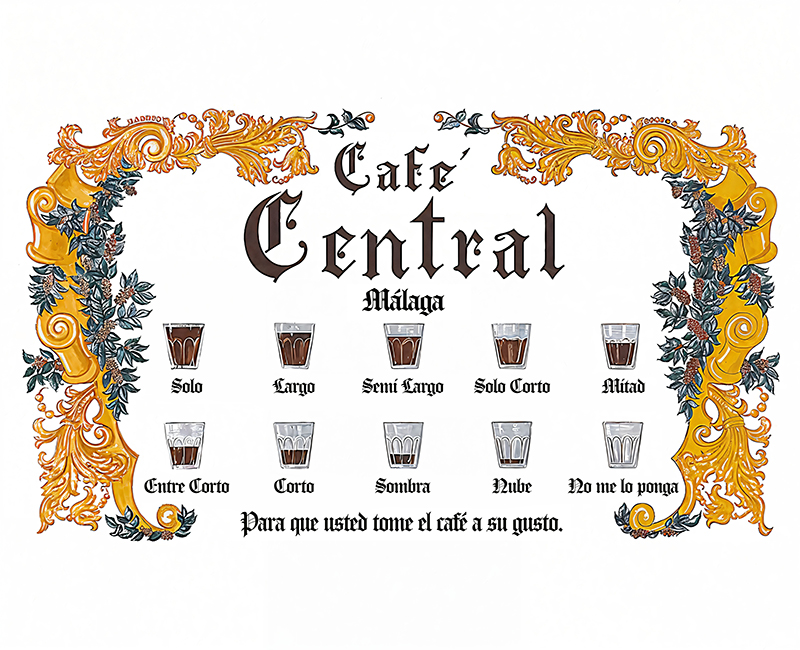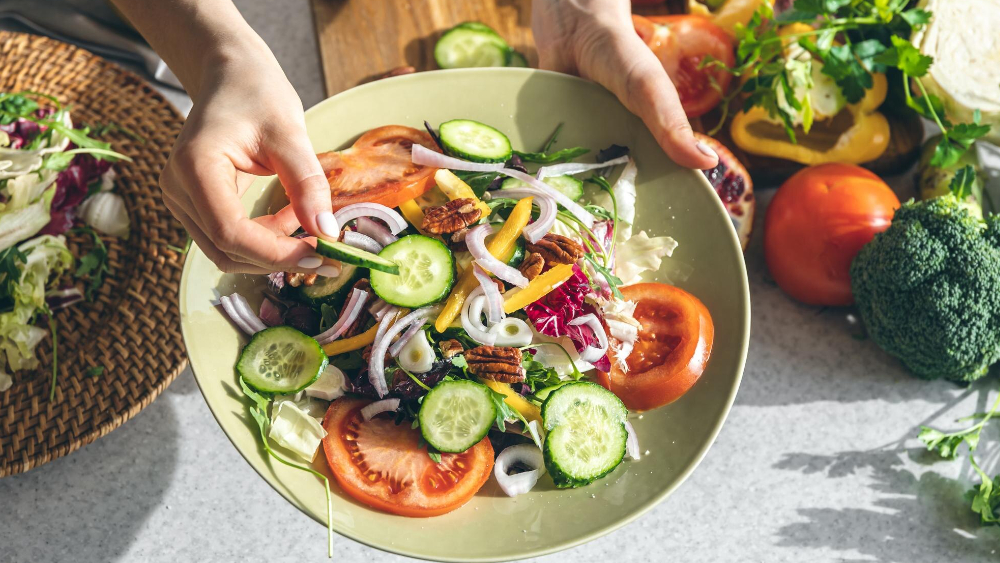In Málaga, ordering coffee does not follow the standard terms you might find in other parts of Spain or abroad. Instead, the city has developed a very precise system based on the proportion of coffee to milk. This way of naming each type of coffee became popular in the mid-20th century, thanks to the Café Central, and has since spread across many cafés in Málaga and its province.
The idea is simple: every name indicates how much coffee is in the cup compared with the milk. By using these words, customers can be exact about the strength they want. Below is a breakdown of the most common terms.
Solo
A pure espresso without milk. Short, intense, and strong.
Largo
Similar to the solo, but slightly larger. The flavour is stronger and more bitter, as more water passes through the coffee.
Semi Largo
Between a solo and a largo. It is still intense, but less forceful than the full largo.
Solo Corto
A very short espresso, even more concentrated than the solo. It has a thicker, almost syrupy texture.
Mitad
Literally “half.” This is made with equal parts coffee and milk. It is the middle point of the Málaga system and one of the most common choices.
Entre Corto
A step between a corto and a mitad. The coffee remains dominant, but the milk softens it slightly.
Corto
An espresso with a small amount of milk. The coffee is still the main element, but not as strong as a solo.
Sombra
Meaning “shadow.” Here the milk is the main ingredient, with just enough coffee to give flavour.
Nube
Literally “cloud.” Almost entirely milk with only a trace of coffee. It is the mildest option on the list.
This vocabulary is part of Málaga’s daily life. For locals, asking for a sombra or a mitad is as normal as ordering bread. For visitors, it can be confusing at first, but once you understand the system, it becomes a very straightforward way of getting exactly the coffee you want.




